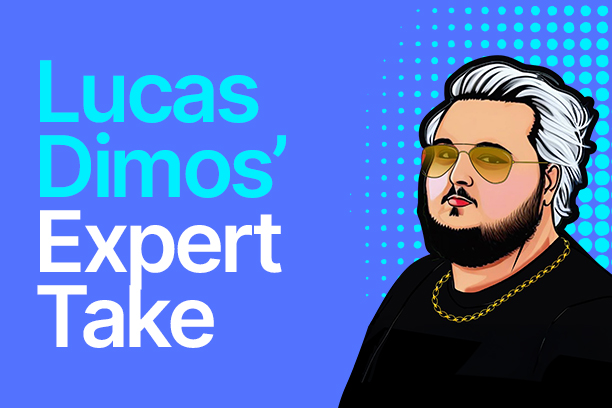In the rapidly evolving world of cryptocurrency, where trends shift overnight and fortunes are made or lost in a click, Lucas, widely known as The Blockchain Boy, offers a refreshingly grounded perspective.
In a candid episode of CoinRock Show, Lucas emphasized a core principle often overlooked amid the hype: critical thinking is the most powerful asset anyone can have in the crypto space.
The Problem: A Space Fueled by Hype and FOMO
Crypto is notorious for its cycles of hype, with projects exploding onto the scene, only to vanish just as quickly. Dimos highlighted how the industry is saturated with influencer-driven narratives, clickbait headlines, and market manipulation designed to prey on emotional decision-making.
“People jump into projects because they see a celebrity endorsement or a trending hashtag, not because they understand the fundamentals,” Lucas noted. This kind of herd mentality often leads to poor investment choices, financial losses, and the perpetuation of scams.
Why Critical Thinking Matters
Lucas’ message is clear: if you can’t think critically, you’re at the mercy of those who can. Critical thinking allows investors and entrepreneurs to:
- Cut Through the Noise: The crypto space is loud. Lucas advises asking questions like, “What problem does this project solve?” and “Is this sustainable, or just a pump-and-dump scheme?”
- Identify Red Flags: From vague whitepapers to unrealistic promises, critical thinkers can spot warning signs that others overlook.
- Make Informed Decisions: Instead of relying on hype, he stresses the importance of analyzing data, understanding market trends, and evaluating real-world applications.

How to Practice Critical Thinking in Crypto
Lucas outlined practical strategies for developing a critical mindset in the crypto landscape:
- Do Your Own Research (DYOR): Don’t rely solely on social media influencers or viral posts. Dive into whitepapers, study the project’s technology, and assess the team’s credibility.
- Question Everything: He said*, “If something seems too good to be true, it most likely is.”*. Never hesitate to ask, “Who gets the benefit from this?” and “What are the risks they’re not telling me?”
- Avoid Emotional Trading: Crypto markets are highly volatile. Decisions driven by fear or greed often lead to mistakes. Lucas suggests setting clear strategies and sticking to them, regardless of market noise.
- Stay Educated: The crypto industry evolves fast. Continuous learning through credible sources helps sharpen analytical skills and keeps investors ahead of the curve.
The Cost of Ignoring Critical Thinking
Lucas didn’t shy away from pointing out the harsh realities of ignoring this crucial skill. He cited examples of major rug pulls and failed projects that wiped out millions of dollars because investors failed to do proper due diligence.
“Crypto will either teach you how to think critically or it’ll empty your wallet—sometimes both,” he said bluntly.
This tough-love approach resonates in an industry where people often seek shortcuts to wealth. For blockchain boy, there’s no substitute for doing the hard work of thinking things through.

Real-World Impact: Success Stories from Critical Thinkers
Lucas shared stories of projects that thrived because their founders and communities applied critical thinking. From identifying gaps in the market to avoiding costly mistakes, the common thread was the ability to question assumptions and analyze data objectively.
Similarly, investors who avoided catastrophic losses during market crashes often did so because they resisted the herd mentality, relying instead on their independent analysis.
Final Thoughts: The Crypto Mindset Shift
In the closing moments of the podcast, Lucas left the audience with a powerful reflection:
“The real gains in crypto aren’t just financial. They’re mental. If you come out of this space as a sharper, more critical thinker, you’ve already won.”
In a world obsessed with quick profits and viral trends, Lucas’ expert advice is a wake-up call: Success in crypto isn’t about chasing the next big thing—it’s about cultivating the mindset to recognize it before everyone else does.
And that starts with critical thinking.





